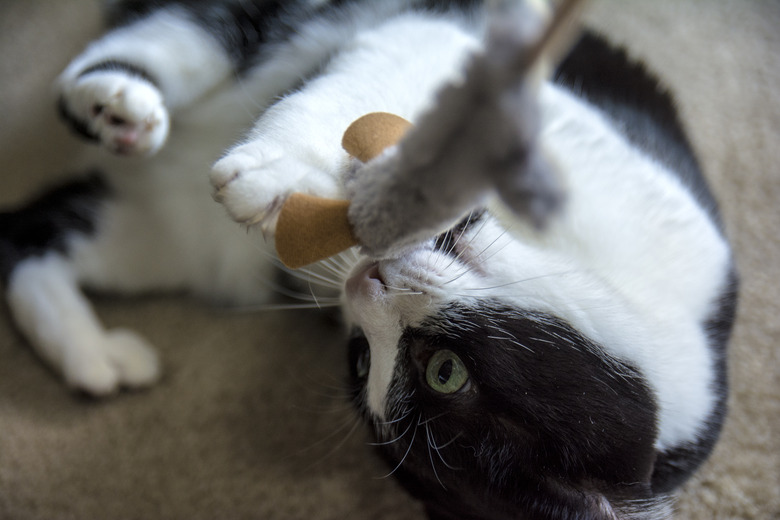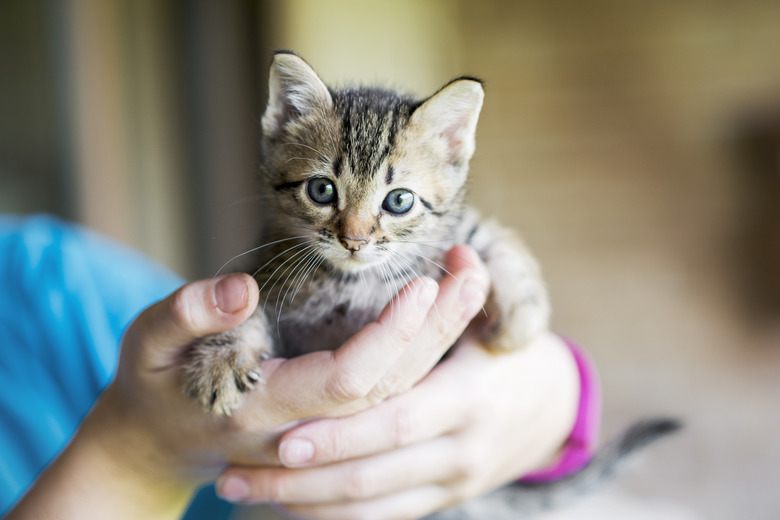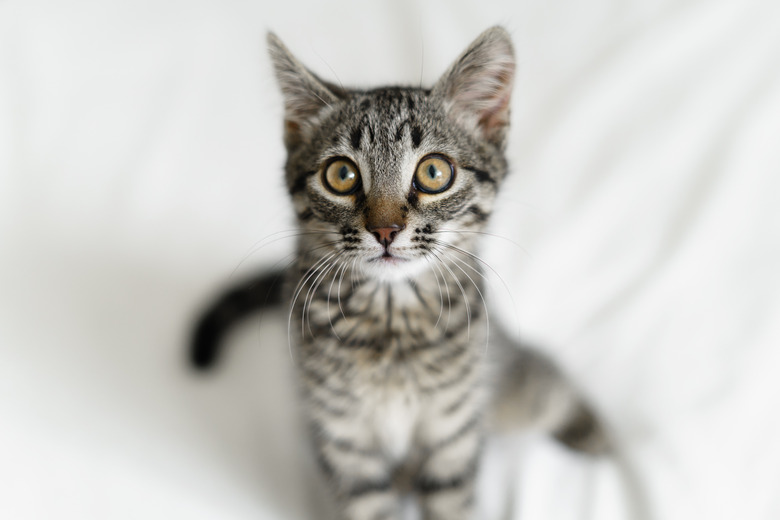How To Calm A Hyperactive Kitten
A kitten's life is all about playing, pouncing, and leaping all around your home, even when you'd prefer they settle down and let you sleep. If your kitten won't calm down, you may need to change your lifestyle and add games, toys, and higher levels of interaction. Playing with your four-legged friend will increase the bond between you two and help calm them down. Keep in mind, however, that being full of energy is a natural part of being a kitten. Eventually, your hyperactive kitten will grow out of it as they become older — so enjoy their natural energy now.
Reasons for hyperactive kittens
Reasons for hyperactive kittens
There are many reasons your kitten won't calm down. Your four-legged friend could be bored and embracing their predatory, nocturnal instincts. Your cat could be searching for more interaction with you or other members of the household because they are bored. If the hyper behavior is recent, it could indicate a medical issue. For example, cats with severe itching or other skin conditions, feline infectious peritonitis, feline AIDS, or hyperthyroidism might become hyperactive or have bouts of "crazy energy." If you suspect a health problem, talk to your veterinarian right away.
Tire hyperactive kittens out
Tire hyperactive kittens out
A healthy kitten naturally will have a lot of energy. The best thing you can do to calm them down is to make sure your kitten uses as much of that energy as possible. Games, exercise, and entertainment are key to keeping a hyperactive kitten under control. Toys and games that encourage hunting behavior — such as a fishing pole toy or chasing a laser light — will get your hyperactive kitten moving, running, jumping, and eventually, tired. Cat trees, perches, and high shelves that allow your kitten to climb, jump, and hide are also good energy burners. You can also passively redirect your kitten's energy by adding a fish tank or bird feeders to distract them.
Never hit a hyperactive kitten
Never hit a hyperactive kitten
Yelling at or hitting the hyperactive kitten will not help the situation and can make it worse. If the kitten bites or claws at you, use a similar technique as their mother and littermates would. Say "Ow!" in a high-pitched voice and ignore your kitten for a few minutes. Rewarding your hyperactive kitten with attention will encourage them to continue repeating the action.
Don't pet them again until they have calmed down and you think they won't try to bite. If your kitten insists on biting you, rub Tabasco sauce or another foul-tasting product on your fingers. This will discourage your cat from biting and might help calm them momentarily.
Get professional help
Get professional help
Regardless of whether you have a male or female kitten, you should talk to your vet about having the kitten spayed or neutered. While castration doesn't necessarily alter a cat's level of energy, it could help lower their level of aggression and their need for rough playing. In addition, neutered and spayed cats don't feel the need to roam and might be content with just relaxing at home and playing with their human family or other pets. However, keep in mind that just neutering or spaying a kitty will not alter their natural play instinct. You will need to tire them out or address other issues if you want your hyperactive kitten to calm down.


